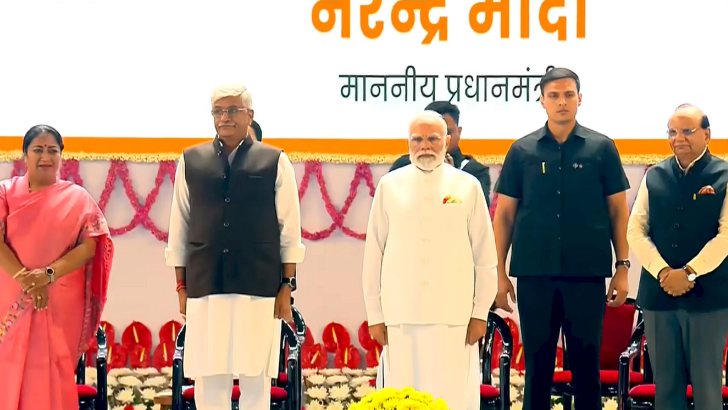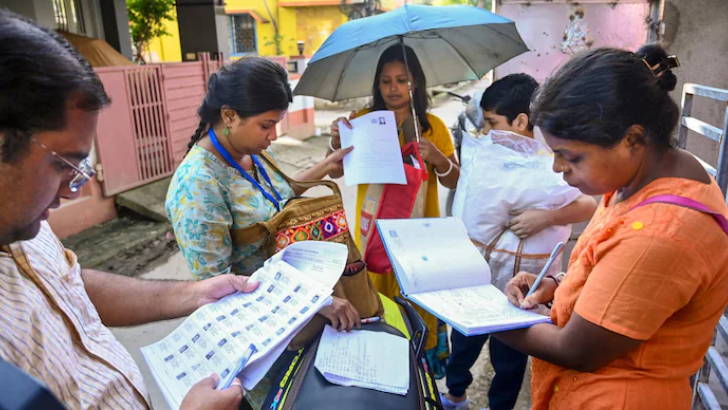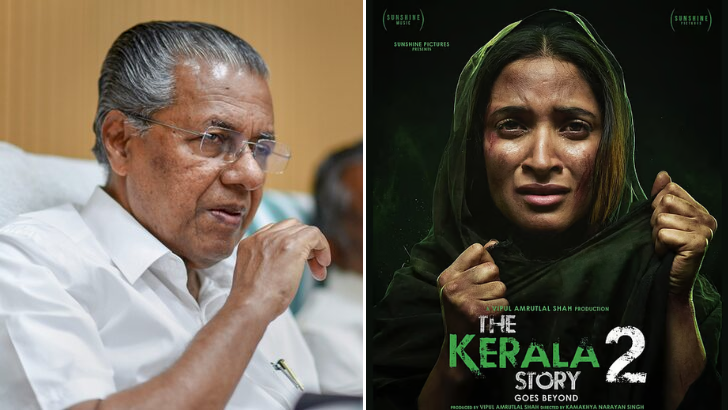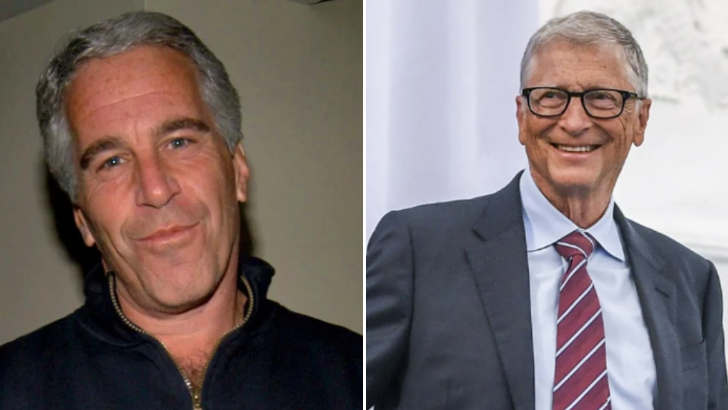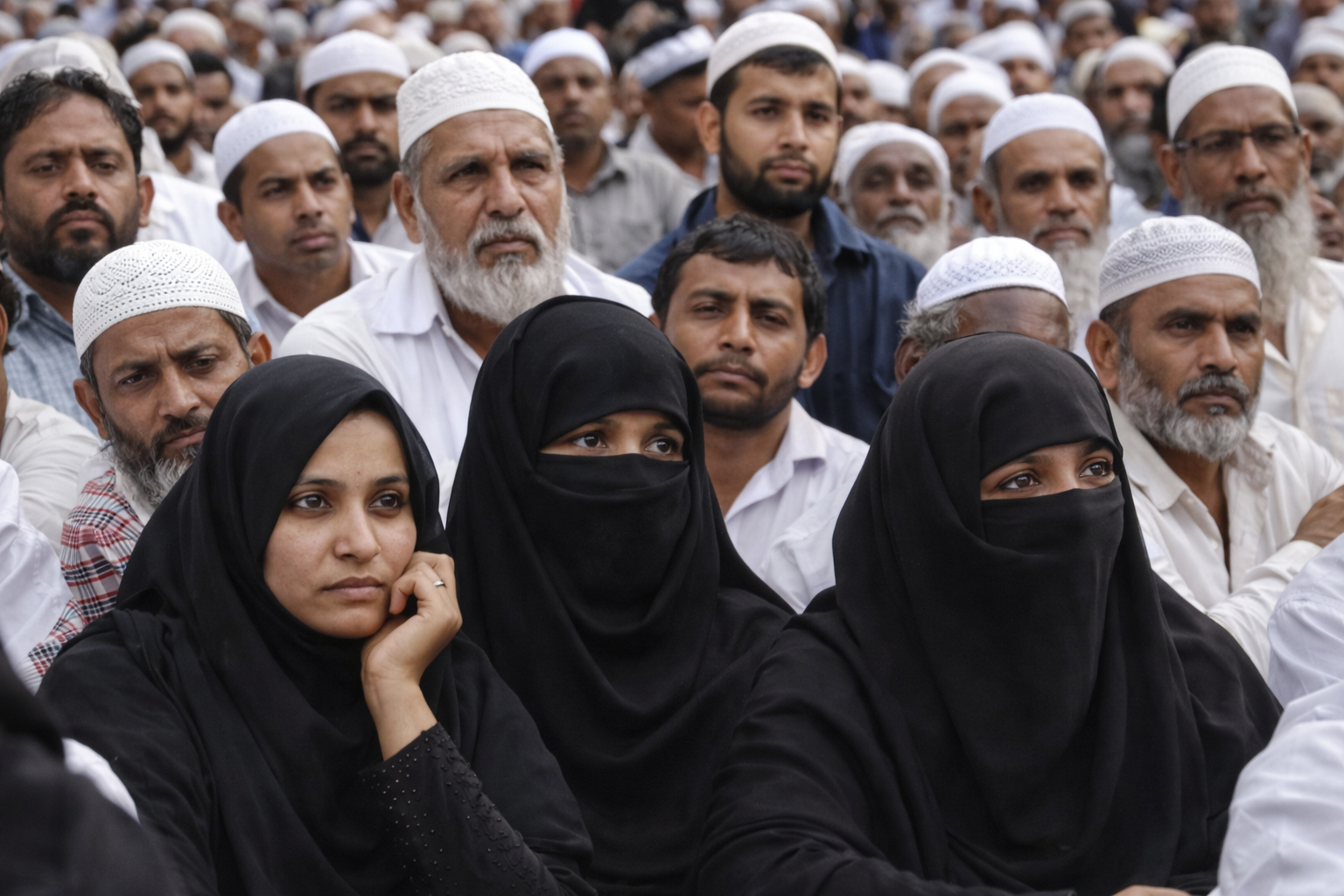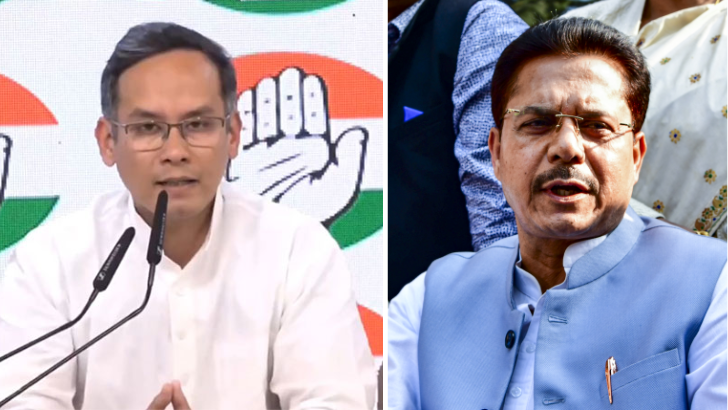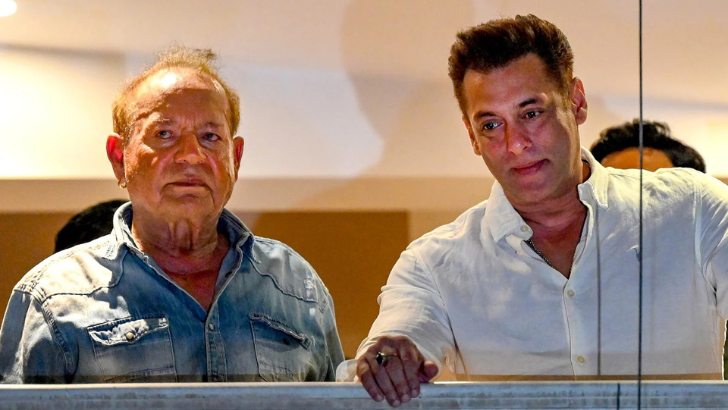Key stanzas of 'Vande Mataram' dropped in 1937: PM slams Congress
Modi eleased a commemorative stamp and coin to mark 150 years of Vande Mataram.
PTI
-
The song was written by Bankim Chandra Chatterji on 7 Nov in 1875 (PTI)
New Delhi, 7 Nov
In an apparent attack at the Congress, Prime Minister
Narendra Modi on Friday said important stanzas of the national song "Vande
Mataram" were dropped in 1937 which sowed the seeds of partition and
asserted that such a "divisive mindset" is still a challenge for the
country.
Modi made the comments while inaugurating the year-long
commemoration of "Vande Mataram" to mark 150 years of the nationalsong. He also released a commemorative stamp and coin on the occasion at the
Indira Gandhi Indoor Stadium here.
"Vande Mataram became the voice of India's freedom
struggle, it expressed the feelings of every Indian. Unfortunately, in 1937,
important stanzas of Vande Mataram..a part of its soul, were separated. The
division of Vande Mataram also sowed the seeds of partition. Today's generation
needs to know why this injustice was done with this 'maha mantra' of nation
building..this divisive mindset is still a challenge for the country," he
said.
Noting that "Vande Mataram" is relevant in every
era, the PM, in an apparent reference to Operation Sindoor, said, "When
the enemy dared to attack our security and honour using terrorism, the world
saw that India knows how to take the form of Durga".
Earlier in the day, the BJP alleged that the Congress party
"brazenly pandering to its communal agenda under the leadership of
Jawaharlal Nehru, adopted only a truncated "Vande Mataram" as the
party's national song in 1937.
"The Congress committed the historic sin and blunder of
linking the song with religion. Congress under Nehru citing religious grounds
deliberately removed stanzas of Vande Mataram which hailed Goddess Ma
Durga," BJP spokesperson CR Kesavan charged in a post on X.
In his remarks at the event, the prime minister said as the
country marks 150 years of "Vande Mataram", it gives us new
inspiration and fills people of the country with new energy.
"Vande Mataram is a word, a mantra, an energy, a dream,
a resolve. It is the devotion to Mother India, the worship of Mother India. It
connects us to our history and gives our future new courage. There is no
resolve that cannot be achieved, no goal that we Indians cannot accomplish. We
have to build a nation which is at the top on the basis of knowledge, science
and technology," Modi said.
He said for centuries, the world listened to stories of
India's prosperity.
"Just a few centuries ago, India accounted for nearly
one-fourth of the global GDP. However, he noted that when Bankim Babu composed
Vande Mataram, India had drifted far from that golden era. Foreign invasions,
plunder, and exploitative colonial policies had left the country suffering with
poverty and hunger," he said.
"Yet, Bankim Babu invoked the vision of a prosperous
India, driven by his belief that no matter how great the challenges, India
could revive its golden age. And thus, he gave the clarion call - Vande
Mataram," Modi said.
Modi stated that during the colonial era, the British sought
to justify their rule by portraying India as inferior and backward.
He emphasised that the very first line of "VandeMataram" powerfully dismantled this false propaganda.
Therefore, "Vande Mataram" was not merely a song
of freedom - it also presented to millions of Indians a vision of what a free
India could be: the dream of a 'Sujalam Sufalam Bharat', he said.
He also said that for those who view the nation merely as a
geopolitical entity, the idea of considering the nation as a mother may seem
surprising.
"But India is different. In India, the mother is the
giver of birth, the nurturer, and when her children are in danger, she is also
the destroyer of evil," Modi said.
He cited the lines from "Vande Mataram",
highlighting that Maa Bharati possesses immense power, guides us through
adversity, and vanquishes enemies.
The PM stated that the idea of the nation as mother, and the
mother as a divine embodiment of strength, led to a freedom movement that
resolved to include both men and women equally.
He added that this vision enabled India to once again dream
of a nation where women power stands at the forefront of nation-building.
The programme marks the formal launch of the year-long
nationwide commemoration - from 7 November, 2025 to 7 November, 2026 -
celebrating 150 years of the timeless composition that inspired India's freedom
movement and continues to evoke national pride and unity.
The song was written by Bankim Chandra Chatterji on the
occasion of Akshaya Navami, which fell on 7 November in 1875.
The song first appeared in the literary journal,
"Bangadarshan", as part of Chatterji's novel, "Anandamath".
Leave a Reply
Your email address will not be published. Required fields are marked *
Woodrowtut
An hour ago played <a href=https://telegra.ph/Stake-Casino-Australia-2025-Navigating-the-Crypto-Gambling-Landscape-Down-Under-10-13-3>Click here to discover why Stake is one of the top online casinos in Australia</a> — real win, no scam. No docs needed and instant cashout. Slots pay well. From Brisbane.
WilliamGlimb
Today, Stake Casino has become a go-to platform for Indian players. To securely access the platform, simply use the trusted access page here — <a href=https://stakefastpayoutsau.com/in/>Experience Stake Casino India 2025 for safe, secure online gambling with high-limit blackjack, live roulette tournaments, premium slots, daily jackpots, crypto-friendly payments, and VIP programs</a> . It’s the easiest way to begin. With a diverse selection of slots, a smooth interface, and INR-friendly payments, the casino excels in the digital casino industry. “Spin popular slots and earn instant rewards now!” Stake Sign-Up in India | Simple Guide Signing up at Stake is very simple, allowing Indian players to place your first bets within minutes. Just follow the access point through the verified gateway at the top, then select Join Now, complete the form, verify your account, and finally add funds to start playing instantly. “Create your account fast and get your free spins!” Stake IN Promotions | Unlock Rewarding Benefits The welcome bonus is among the key benefits new users choose Stake. New IN members can instantly boost their bankroll with offers tailored for the local audience. • Welcome Bonus Package — Enjoy extra funds up to ?10,000. • Free Spins Offers — Receive complimentary spins on selected games. • VIP & Loyalty Program — Collect rewards for each bet, then unlock exclusive perks. “Deposit ?1000 and get ?1000 free to explore the casino!”








